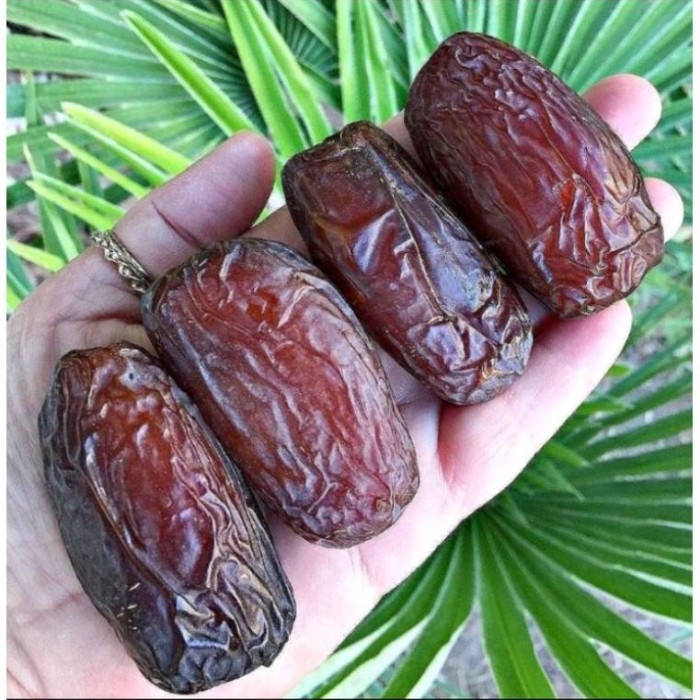Exploring the Nutritional Differences Between Fresh Dates and Dried Dates

1. Introduction: The Allure of Kurma Medjool Palestine
Kurma Medjool Palestine is a highly regarded date variety known for its exceptional taste, texture, and nutritional benefits. In this blog post, we will delve into the world of dates and explore the nutritional differences between fresh dates and dried dates, with a specific focus on the exquisite Kurma Medjool Palestine. Join us as we unravel the health benefits, flavor profiles, and culinary uses of these date varieties.
2. Fresh Dates: Nature’s Sweet Delights
2.1 Nutritional Composition
Fresh dates are succulent, plump fruits that are enjoyed in their natural state. They are rich in essential nutrients such as vitamins, minerals, fiber, and antioxidants. The nutritional composition of fresh dates may vary slightly depending on the variety, but they generally offer a good source of potassium, magnesium, and vitamin B6.
2.2 Health Benefits
Fresh dates are known for their numerous health benefits. They are a great source of dietary fiber, which aids in digestion and helps maintain bowel regularity. The natural sugars present in fresh dates provide a quick energy boost, making them an excellent choice for athletes and individuals needing an instant pick-me-up. Additionally, fresh dates contain antioxidants that help protect the body against oxidative stress and inflammation.
2.3 Flavor and Culinary Uses
Fresh dates have a luscious, moist texture with a sweet, caramel-like flavor. They can be enjoyed as a standalone snack or incorporated into various culinary creations. Fresh dates make a delightful addition to salads, smoothies, desserts, and even savory dishes. Their natural sweetness adds depth and richness to recipes, making them a versatile ingredient in both sweet and savory preparations.
3. Dried Dates: Concentrated Goodness
3.1 Nutritional Composition
Dried dates, as the name suggests, undergo a drying process that removes most of their water content. This process results in a more concentrated nutritional profile compared to fresh dates. Dried dates are rich in dietary fiber, potassium, iron, and antioxidants. They are also a good source of natural sugars and provide a longer shelf life compared to fresh dates.
3.2 Health Benefits
Dried dates offer similar health benefits to fresh dates but in a more concentrated form. The high fiber content aids in digestion, supports weight management, and helps regulate blood sugar levels. Dried dates are also a great source of natural sugars, making them a healthier alternative to refined sugars in baking and cooking.
3.3 Flavor and Culinary Uses
Dried dates have a chewy texture and a rich, intense sweetness. They are often enjoyed as a standalone snack or used as a natural sweetener in various recipes. Dried dates are a popular ingredient in energy bars, granola, trail mixes, and baked goods. Their concentrated sweetness and caramel-like flavor add depth and complexity to both sweet and savory dishes.
4. Nutritional Differences: Fresh Dates vs. Dried Dates
4.1 Water Content
Fresh dates have a high water content, typically around 60-70%. On the other hand, dried dates have a significantly lower water content, usually ranging from 15-30%.
4.2 Fiber Content
Both fresh and dried dates are excellent sources of dietary fiber. However, dried dates contain a higher concentration of fiber due to the removal of water during the drying process. This makes dried dates particularly beneficial for digestive health and maintaining regular bowel movements.
4.3 Sugar Content
Fresh dates and dried dates naturally contain sugars, but dried dates have a higher sugar concentration due to the removal of water. Individuals monitoring their sugar intake should be mindful of portion sizes when consuming dried dates.
4.4 Nutrient Density
The drying process of dates results in a higher nutrient density in dried dates compared to fresh dates. The removal of water concentrates the vitamins, minerals, and antioxidants present in the fruit, making dried dates a more potent source of these beneficial compounds.
5. Conclusion
In conclusion, both fresh dates and dried dates, including the exquisite Kurma Medjool Palestine, offer unique flavors, textures, and nutritional profiles. Fresh dates are juicy, plump fruits rich in essential nutrients and provide a natural source of energy. Dried dates, on the other hand, have a more concentrated nutritional composition and are particularly beneficial for digestive health and as a natural sweetener.
Understanding the nutritional differences between fresh dates and dried dates allows individuals to make informed choices based on their dietary needs and preferences. Whether enjoyed fresh or dried, dates are a versatile and delicious addition to various culinary creations, ranging from sweet desserts to savory dishes.
Key Highlights:
– Kurma Medjool Palestine is a highly regarded date variety known for its taste, texture, and nutritional benefits.
– Fresh dates are succulent fruits rich in essential nutrients, fiber, and antioxidants.
– Fresh dates offer health benefits such as aiding digestion, providing quick energy, and offering antioxidant protection.
– Dried dates have a more concentrated nutritional profile and are a good source of dietary fiber, potassium, and antioxidants.
– Dried dates offer similar health benefits to fresh dates and have a longer shelf life.
– Understanding the nutritional differences between fresh dates and dried dates helps individuals make informed dietary choices.
– Both fresh and dried dates can be enjoyed in a variety of culinary creations.
– Kurma Medjool Palestine can be appreciated in its fresh or dried form, adding a touch of luxury to any recipe.